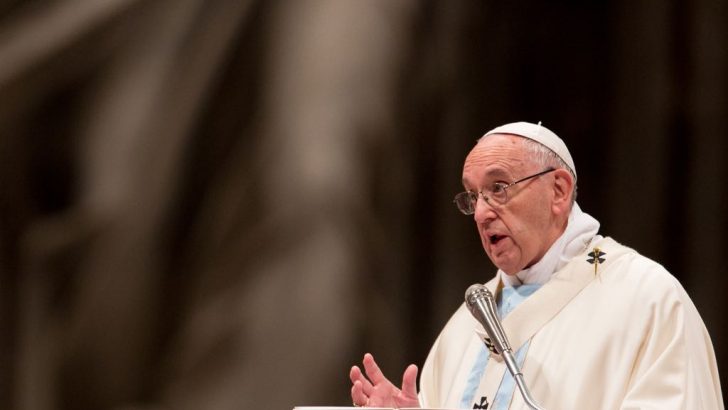Hannah Brockhaus
When praying, remember the words of Jesus when he taught the ‘Our Father,’ Pope Francis said today, meeting God as his beloved child and speaking from the heart.
Some think that to pray is to use many words. “I too think of many Christians who believe that praying is to talk to God like a parrot, no! Praying is done from the heart, from inside,” the Pontiff said.
“He does not need anything, our God: in prayer he asks only that we keep open a channel of communication with him to always discover ourselves [to be] his beloved children and [that] he loves us so much.”
In his first general audience of 2019, Pope Francis continued his teaching on the ‘Our Father’ by reflecting on the context in which Jesus taught the prayer to his followers.
When Jesus introduces the ‘Our Father’ as a way to pray, he at the same time distances himself from two types of people and two other ways of praying, the Pope said.
The first way is the mode of the hypocrite, who when he prays wants to be seen and admired, he said, noting that this is like the scandal of people who often go to Church, but then turn around and spread hate, speaking badly about people. “This is a scandal! Better not to go to church: live like that, as an atheist,” he said.
Christians, he added, should strive to give witness, not a counter-witness. He pointed out that Jesus also distances himself from the “babble” of pagans, “who think they will be heard because of their many words”.
The Pope explained that in this passage, Jesus might be alluding to a type of ‘captatio benevolentiae’ – the idea in ancient pagan worship that the gods had to be first placated by a long list of praises.
“Christian prayer, on the other hand, has no other credible testimony than its own conscience,” he said, “where a continuous dialogue with the Father intertwines intensely: ‘When you pray, go into your room, close the door and pray to your Father, who is in secret.’”
Jesus, Pope Francis said, teaches his disciples to turn to God in prayer, as a child turns to his or her father, who already knows “what things he needs before he asks them.”
Catholic News Agency


 The Pope gives a homily.
The Pope gives a homily. 